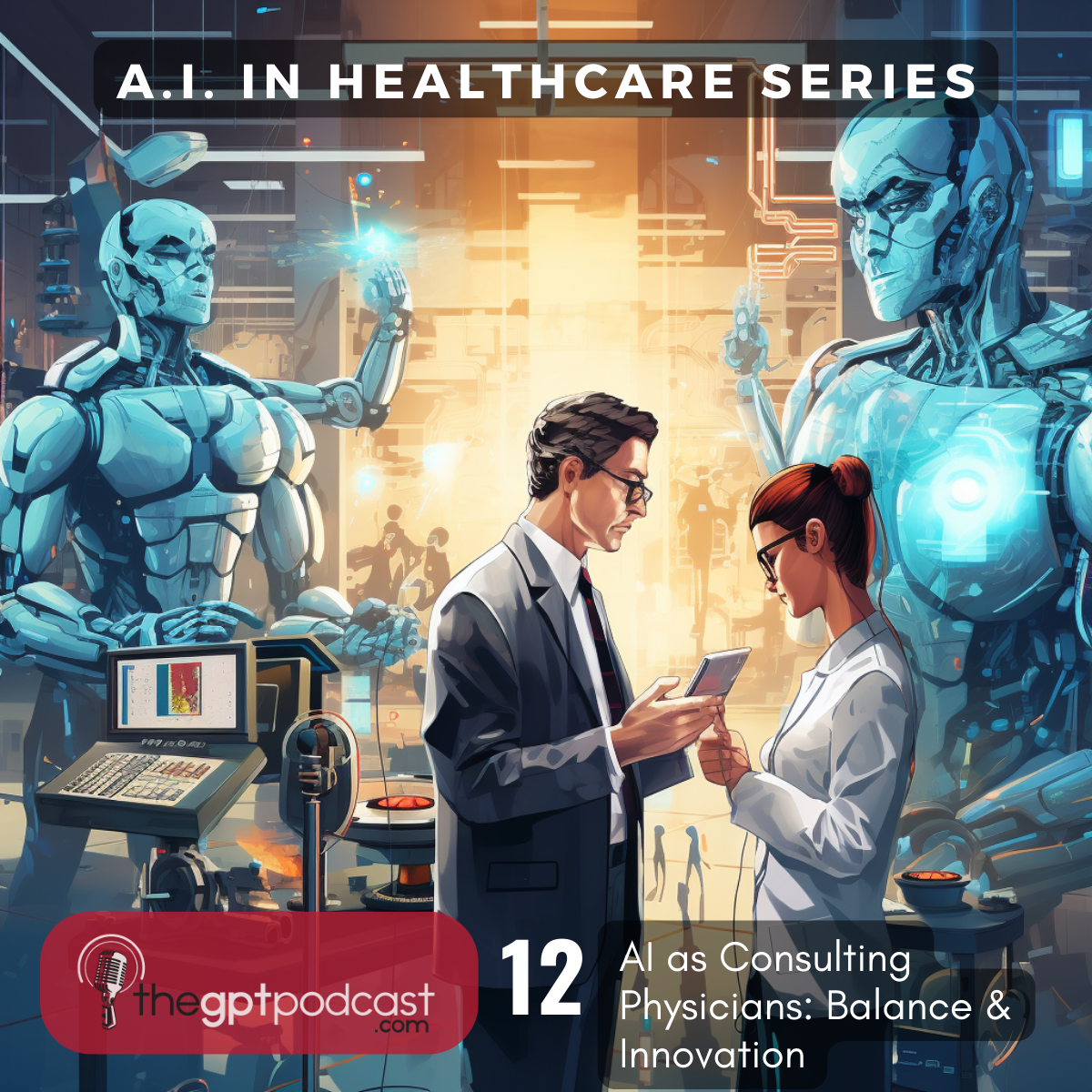AI as Consulting Physicians: Balance & Innovation
🎙️In the GPT podcast we discuss how AI, specifically ChatGPT model, is being used in medical training in Boston.🩺🤖The AI acts like a consulting physician, offering different perspectives on cases. Although some find it useful, others are cautious⚕️

Welcome to today's podcast, where we delve into the innovative intersection of artificial intelligence (AI) and healthcare, particularly focusing on its transformative role in medical diagnosis and education.
Pioneering this shift is a medical school in Boston, integrating AI, specifically with the ChatGPT model, into their training regime. Their strategy is to equip tomorrow's doctors with the expertise to, think like seasoned medical professionals. The AI tool, GPT-4, has been deployed like a consulting physician, reminiscent of a 'curbside consult'. This is where a medical professional might confer with a peer over a difficult patient case, tapping into collective wisdom and varying perspectives.
Crucially, the role of a doctor often resembles that of a detective, piecing together 'illness scripts' - narratives connecting signs, symptoms, and test results, to diagnose a disease. The concept is based on pattern recognition and relating the current situation to past experiences. Mirroring this approach, GPT-4 is capable of creating a similar script, offering potential diagnoses based on data inputs.
The reactions to this AI consultation have been mixed. Some students found it beneficial, while others showed concerns. Dr. Christopher Smith, the director of the internal medicine residency program at the medical center, noted worries about becoming overly reliant on AI for diagnoses, possibly leading to careless errors.
Interestingly, an unexpected revelation came from doctors at Beth Israel Deaconess, who found GPT-4 outperforming most doctors on weekly diagnostic challenges.
To optimize the benefits of this AI tool, they advise treating the bot as a ‘doctor seeing a certain type of patient with specific symptoms’, ensuring a more tailored and precise response. However, they also caution against forgetting that AI, though advanced, can have errors and even 'hallucinate', providing answers with no grounding in reality.
Striking the right balance becomes critical. AI tools are not intended to replace human judgment and expertise but enhance them. They provide valuable perspectives, acting as a compass, guiding the doctor who does the actual steering. Therefore, the usage of these tools should be nuanced, critically evaluated, and selectively implemented.
As we contemplate a future where AI interfaces even more deeply with healthcare, it is important to remember that technology can guide us, but the navigation and final decision-making rest with human professionals.
The advances in AI hold tremendous potential for healthcare. As these tools continue to evolve and improve, it remains to be seen how they further shape the field. The role of AI in medical diagnosis and teaching provides a fascinating glimpse into the rapidly transforming landscape of healthcare. Enjoyed this piece? Stay tuned for more insightful discussions in our AI in Healthcare series.

